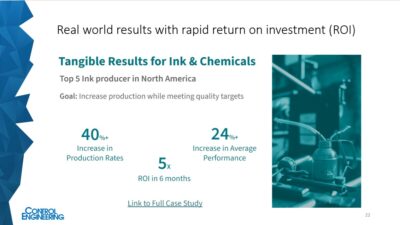Developing a long-term relationship delivers better solutions across multiple projects. Six critical criteria are highlighted.

System integrators often fill a critical client need when executing and supporting automation and electrical projects, so selecting the right one is key to long-term success. The integrator and client relationship can take many forms, from engineering services by the hour to a mutually beneficial long-term partnership.
There are six critical criteria to weigh during the system integrator selection process:
1. Domain expertise
End user companies and utilities naturally are focused on their particular industry, and the selected integrator should share this focus. A company or utility planning a project should select an integrator with in-depth expertise in its industry, or risk using its own time and resources to educate the integrator.
Integrators who spread themselves thin by working in multiple industries may not be familiar with the intricacies of your industry in sufficient depth. This makes it difficult for them to deliver important insights and add value. An integrator with solid experience in your industry understands the hidden challenges and can engineer solutions to ensure more successful outcomes.
2. A focus on mutual, long-term success
Automation and electrical projects are complex by nature. There are many opportunities during the planning, procurement, and implementation stages for missteps that can cause delays, rework, and additional costs.
An integrator fixated on maximizing profits from each individual job may view the client as “just a project.” It will point fingers and seek to recover every additional cost, rather than focusing on the client’s best interests over the life of the system.
Integrators with a “client for life” philosophy will see each project as part of a long-term commitment, placing client satisfaction over immediate profits. Such an integrator looks to find solutions through consensus without thought to fault. When responsibility is truly shared in this manner, finding a solution is a mutual effort, and these experiences build trust. This is an integrator you can count on even after the project is completed.
3. A wide range of capabilities
Few plant or utility managers are willing to take on the role of general contractor for a project because there is little to be gained and much risk involved when managing multiple contractors. It demands an inordinate amount of time and creates countless opportunities for gaps to develop.
By choosing a single-source integrator with end-to-end capabilities, the required coordination effort among multiple contractors, and corresponding project risk, is reduced drastically. Some integrators operate more as general contractors and farm out different functions to a variety of sub-contractors, leaving projects exposed to scheduling problems and potential cost overruns. An integrator with broader in-house capabilities maximizes the likelihood of finishing a project on schedule and budget because it has more control over each project task, and over the coordination among these tasks.
4. Platform diversity
Each automation project is unique and requires the selection of best-of-breed automation platforms to provide optimal outcomes. Ideally, the client company and the integrator will work together to specify the best vendors for the project. Unfortunately, some integrators have hidden agendas, which can hamper the selection process.
Many system integrators have close ties to a small group of vendors and specify their products even when they may not be the best fit for the client. Vendor partiality happens for a few reasons. Automation vendors build relationships with integrators through preferential product pricing, technical assistance, or in some cases, outright ownership. One of the main negative outcomes is limited proficiency with a wider range of technologies, thus limited options for the client.
A plant or utility manager should instead look for a truly independent integrator offering proficiency with multiple platforms. This allows the integrator to deliver the best approach for the client by prioritizing the solution over the selection of a specific vendor.
5. Project execution flexibility
Integrators should be knowledgeable and experienced enough in multiple project execution methodologies to satisfy a client’s need for flexibility. Different companies and utilities have different methods for soliciting bids and awarding contracts. These can be driven by long-standing policies or local ordinances.
Some projects will fall under the legacy design-bid-build model, where the entity designing the project might not receive the implementation contract. Or, the integrator landing the implementation contract may have had no hand in designing the project.
Others may use design-build or some combination of both project execution methodologies. While design-bid-build often creates serious continuity disconnects, it is still a common approach, particularly when dealing with states and municipalities.
Consequently, an integrator must be prepared to work within any project execution framework. If it is tied to only one method of project execution, it can hinder long-term partnering, especially as the owner-integrator relationship matures to the preferred design-build approach.
6. Investment in the future
Clients don’t want to be guinea pigs for implementation of new technologies, but they do want to take advantage of the latest developments. This requires partnering with an integrator that allocates a significant percentage of its revenues to test new solutions in-house before trying them out on projects.
The right integrator will know when new technologies are ready for prime time because it has tested them thoroughly. Its recommendations include not just an understanding of a given technology, but how it will be put to work in applications common to a specific industry.
All six of these criteria need to be met by the integrator to build a long-term relationship across multiple projects and produce successful outcomes. While many client companies do not look beyond the completion of a project, the same factors that drove the relationship at the outset remain in effect long after the keys are handed over.
Most integrators can deliver on a few of these criteria; finding one able to excel in all six is rare and represents an integrator worth considering.
Michael Prosser is director of special projects for Tesco Controls Inc.



